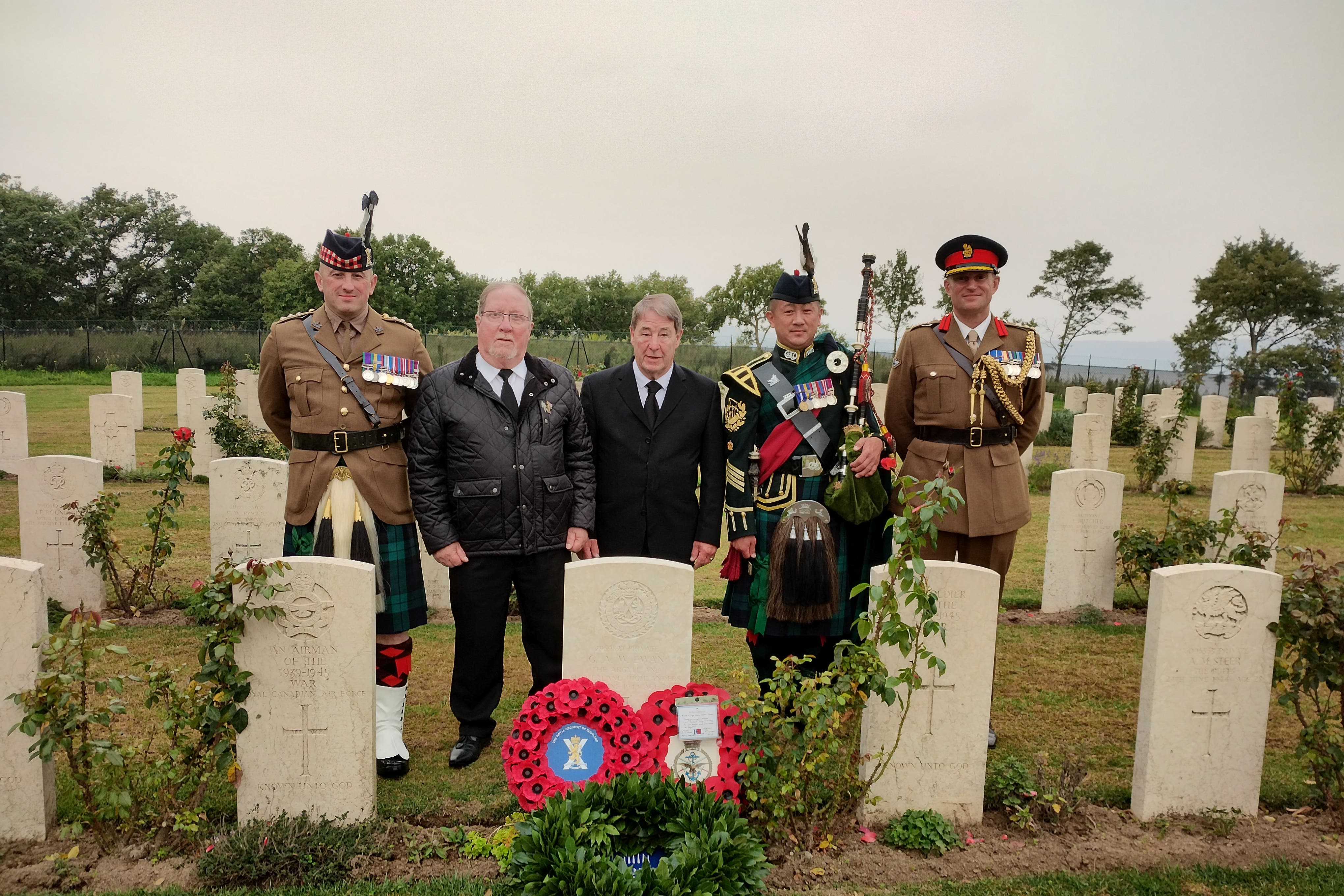Grave of Scottish soldier is identified 80 years after he died in Italy
Private George Alister Walker Ewan of the Argyll and Sutherland Highlanders died after being wounded in action in June 1944.

Your support helps us to tell the story
From reproductive rights to climate change to Big Tech, The Independent is on the ground when the story is developing. Whether it's investigating the financials of Elon Musk's pro-Trump PAC or producing our latest documentary, 'The A Word', which shines a light on the American women fighting for reproductive rights, we know how important it is to parse out the facts from the messaging.
At such a critical moment in US history, we need reporters on the ground. Your donation allows us to keep sending journalists to speak to both sides of the story.
The Independent is trusted by Americans across the entire political spectrum. And unlike many other quality news outlets, we choose not to lock Americans out of our reporting and analysis with paywalls. We believe quality journalism should be available to everyone, paid for by those who can afford it.
Your support makes all the difference.The grave of a formerly unknown Scottish soldier who lost his life in Italy during the Second World War has been identified and rededicated 80 years after his death.
Private George Alister Walker Ewan of the Argyll and Sutherland Highlanders was wounded in action in the Vaiano area in Tuscany in late June 1944.
He was presumed to have died of his wounds on or soon after June 21 1944, and was buried – possibly by either the German army or by local civilians – at the civilian cemetery at Castiglione del Largo.
However, his name was not recorded, and he was listed in the cemetery records as an unknown British soldier.
Following the war, his remains were recovered from Castiglione del Largo and moved to the Bolsena War Cemetery in Italy.
His cap badge showed he had been a member of the Argyll & Sutherland Highlanders, but no other identifying artefacts were found.
Eighty years on, thanks to work done by an independent researcher, the National Army Museum (NAM) and the Ministry of Defence’s Joint Casualty and Compassionate Centre (JCCC), the final resting place of Private Ewan has been identified.
The grave was rededicated with military honours on Wednesday October 16, in a service attended by Private Ewan’s cousins.
I am grateful to the researcher who submitted this case. Their work has led us to recognise the final resting place of Private Ewan, to restore his name to him and to allow his family to honour his sacrifice
Alexia Clark, a caseworker with JCCC, said: “I am grateful to the researcher who submitted this case.
“Their work has led us to recognise the final resting place of Private Ewan, to restore his name to him and to allow his family to honour his sacrifice.
“It has been a privilege for me to have contributed to this case and to have organised the service for the rededication of Private Ewan’s grave today.”
The grave was identified after an independent researcher submitted evidence to the Commonwealth WAr Graves Commission (CWGC) regarding the final resting place of Private Ewan.
This research was reviewed, and extra work was conducted by the NAM and the JCCC which concluded that now, 80 years after his death, it was possible to clearly identify where he was buried.
Private Ewan was born in Canada to Scottish parents in 1915, but the family returned to Dollar, Clackmannanshire, in 1916.
He joined the army in June 1940, and spent two years on home defence duties with a Territorial battalion of the Argyll and Sutherland Highlanders.
In late 1941, he was transferred to the regiment’s 8th Battalion, and embarked with them for North Africa in October 1942 where he took part in the second battle of El Alamein, before later serving in Italy.
We are grateful to everyone involved in identifying the grave of this brave soldier, who died 80 years ago today
Geert Bekaert, director for central and southern Europe at CWGC, said: “We are grateful to everyone involved in identifying the grave of this brave soldier, who died 80 years ago today.
“It is our duty – and privilege – to care for the grave of Private Ewan, in perpetuity.”
The rededication service, which was organised by the JCCC, was held in the CWGC Bolsena War Cemetery in Italy.
Where clear and convincing evidence is provided to prove the identity of a previously “unknown” war grave a new, named headstone is provided.
The JCCC – also known as the “War Detectives” – will try to trace the family and arrange a rededication service held with military honours at the graveside.
The CWGC commemorates the 1.7 million Commonwealth servicemen and women who died during the two world wars. It also holds and updates an extensive and accessible records archive.